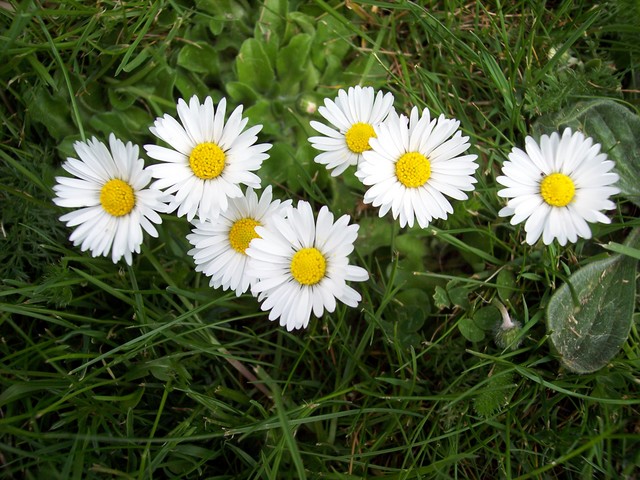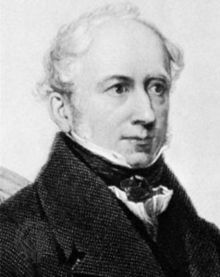The Daisy (Bellis Perennis).
 The “Day’s Eye” blooms in father Chaucer’s verse,
The “Day’s Eye” blooms in father Chaucer’s verse,
Through all the centuries; in an inspired hour,
Burns sang the “modest, crimson, tippêd flower”;
Sweetly and brief as old Wither did rehearse
How it does “shut when Titan goes to bed;” 5
Wordsworth with mighty power, has hymn’d its praise;
Montgomery i’ the choicest of his lays,
Tells “how it never dies!” Often it led
Our infant footsteps into rural lanes,
Or along by-paths rich with many a gem 10
Fallen from Flora’s glowing diadem,
Till health and happiness were e’er our gains.
Children are always poets: pity we
Should ever quench the sparks of poësy.
George Markham Tweddell
[Sonnets on Trees and Flowers, p. 18.] Also published in Voice of
Masonry, March, 1885. Northern Weekly Gazette, April 17/97.
Refers to various poets – Chaucer, James Montgomery, Burns, Wordsworth, George Wither
James Montgomery (4 November 1771 – 30 April 1854) was a British editor, hymnwriter and poet. He
was particularly associated with humanitarian causes such as the campaigns to abolish slavery and to end the exploitation of child chimney sweeps.
George Wither (11 June 1588 – 2 May 1667 .) was an English Emblemist poet, pamphleteer, and satirist. He was a prolific writer who adopted a deliberate plainness of style; he was several times imprisoned. C. V. Wedgwood wrote “every so often in the barren acres of his verse is a stretch enlivened by real wit and observation, or fired with a sudden intensity of feeling”.

